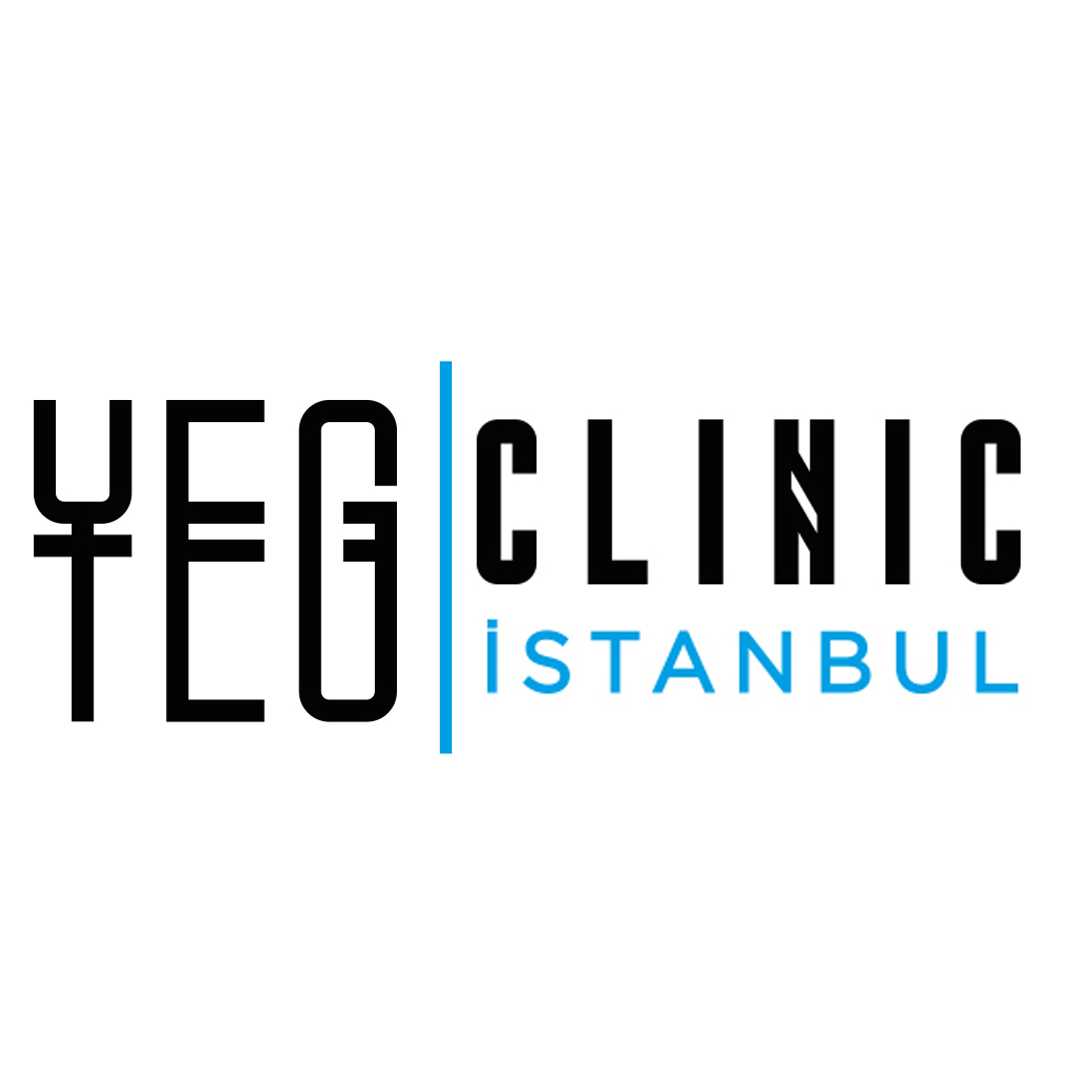Price of Dental Veneers in Istanbul, Turkey
.png)
Achieving a radiant, picture-perfect smile is a desire shared by many, and dental veneers have emerged as a highly effective solution. If you've been considering this transformative cosmetic procedure, Turkey stands out as a leading global destination, offering high-quality treatment at remarkably affordable prices. This guide will delve into everything you need to know about dental veneers in Turkey, from costs and types to the procedure and aftercare, providing clear and concise answers to all your pressing questions. We'll explore why so many individuals choose Turkey for their smile makeover and what factors contribute to its popularity.
How much are dental veneers in Turkey?
"Dental veneers in Turkey generally cost between $100 and $800 per tooth, depending on the type of material (composite, porcelain, E-max, Zirconium) and the clinic's location and reputation."
The cost of dental veneers in Turkey is significantly lower than in many Western countries, often providing savings of up to 70-80%. This affordability is a major draw for international patients seeking a smile transformation. The exact price can vary based on several factors, including the number of veneers needed, the specific type of material chosen, the expertise of the dentist, and whether additional services like accommodation and transfers are included in a package. Patients can expect a full set of veneers (typically 16-20 teeth) to range from $2,000 to $8,000, which is a fraction of the cost in countries like the US or UK.
Why are dental veneers cheaper in Turkey compared to other countries?
"Dental veneers are cheaper in Turkey primarily due to a lower cost of living, lower labor costs, competitive dental tourism market, and government support, which collectively reduce overheads for dental clinics."
Turkey's economic structure plays a significant role in its ability to offer highly competitive prices for dental treatments. The cost of living, including wages, rent, and supplies, is considerably lower than in many Western European and North American countries. This directly translates into lower operating costs for dental clinics. Furthermore, the thriving dental tourism industry in Turkey has fostered intense competition among clinics, prompting them to offer attractive packages and prices to draw international patients. The Turkish government also supports the medical tourism sector through various initiatives, which can indirectly contribute to the affordability of treatments like dental veneers.
What types of dental veneers are available in Turkey?
"In Turkey, the most common types of dental veneers available are Porcelain Veneers (including E-max and Zirconium) and Composite Veneers, each offering distinct aesthetic and durability characteristics."
Each type of dental veneer caters to different needs and budgets, providing patients with a range of options to achieve their desired smile.
Porcelain Veneers: These are thin, custom-made shells of medical-grade porcelain bonded to the front surface of the teeth. They are highly durable, stain-resistant, and mimic the natural translucency of tooth enamel, offering a very natural and aesthetically pleasing result. Within porcelain veneers, two popular sub-types are:
- E-max Veneers: Made from lithium disilicate ceramic, E-max veneers are known for their exceptional strength, durability, and superior aesthetics. They offer a highly natural appearance due to their light-reflecting properties.
Zirconium Veneers: These veneers are crafted from zirconium oxide, a highly durable and biocompatible material. While slightly less translucent than E-max, Zirconium veneers are incredibly strong, making them an excellent choice for individuals who prioritize durability, especially for back teeth or those with stronger biting forces.
Composite Veneers: Made from a tooth-colored resin material, composite veneers are applied directly to the teeth and sculpted into shape by the dentist. They are a more affordable and quicker option, often completed in a single visit. While not as durable or stain-resistant as porcelain, they can be easily repaired.
What is the typical cost of Porcelain Veneers in Turkey?
"Porcelain veneers in Turkey typically cost between $200 and $400 per tooth, though prices can vary based on the specific type of porcelain (E-max, Zirconium) and clinic."
Porcelain veneers are a popular choice due to their natural appearance and long-lasting results. The investment in porcelain veneers in Turkey provides significant value compared to Western prices. For instance, a porcelain veneer in the US might cost upwards of $1,000 to $2,500 per tooth, making Turkey's pricing extremely attractive for those seeking high-quality cosmetic dentistry without the hefty price tag. Factors like the brand of porcelain used (e.g., IPS e.max, Lumineers) can also influence the final cost.
How much do E-max Veneers cost in Turkey?
"E-max veneers in Turkey generally range from $300 to $600 per tooth, reflecting their premium quality, strength, and superior aesthetic properties."
E-max veneers are considered a top-tier option for porcelain veneers due to their excellent light-reflecting qualities and impressive durability. While slightly more expensive than standard porcelain veneers, the investment in E-max veneers is often justified by their natural look and longevity. Many clinics in Turkey offer competitive packages that include E-max veneers, making this high-end option more accessible to international patients.
What is the price of Zirconium Veneers in Turkey?
"Zirconium veneers in Turkey typically range from $400 to $800 per tooth, known for their exceptional strength and durability, making them a robust choice for a lasting smile."
Zirconium veneers are an excellent option for patients who require maximum strength and resistance to chipping, particularly for those with a strong bite or who grind their teeth. Their robust nature, coupled with their aesthetic appeal, makes them a valuable investment. Despite being a more expensive option among veneers, the cost of Zirconium veneers in Turkey remains considerably lower than in many other countries, allowing patients to access premium materials at a more affordable rate.
What is the cost of Composite Veneers in Turkey?
"Composite veneers in Turkey are the most budget-friendly option, typically costing between $100 and $300 per tooth, making them an accessible choice for a quick smile enhancement."
Composite veneers offer a fast and relatively inexpensive way to improve the appearance of your teeth. They are often applied in a single visit, as the resin material is sculpted directly onto the tooth surface. While they may not offer the same level of stain resistance or longevity as porcelain veneers, composite veneers are a great option for minor cosmetic improvements or for those on a tighter budget. They are also easily repairable if chipped or damaged.
What is included in a typical dental veneers package in Turkey?
"A typical dental veneers package in Turkey often includes the veneers procedure, initial consultation, diagnostic tests (X-rays), local anesthesia, temporary veneers, and often also includes accommodation and airport transfers."
Many Turkish dental clinics cater to international patients by offering all-inclusive packages designed for convenience and peace of mind. These packages aim to provide a seamless experience, covering not only the dental treatment itself but also logistical aspects of travel. It's essential to confirm the specifics of each package, as inclusions can vary. Some premium packages might also offer additional benefits like post-treatment check-ups, medication, or even guided tours.
How long does the dental veneers procedure take in Turkey?
"The dental veneers procedure in Turkey typically requires two visits over 5-7 days for porcelain veneers, while composite veneers can often be completed in a single visit."
The timeline for getting dental veneers in Turkey depends on the type of veneer chosen.
- Porcelain Veneers: The process usually involves two main appointments. The first visit includes the initial consultation, comprehensive examination, diagnostic imaging (like X-rays), and preparing the teeth by removing a small amount of enamel. Impressions are then taken and sent to a dental lab to custom-fabricate the porcelain veneers. Temporary veneers are usually placed to protect the prepared teeth. The second visit, a few days later, involves bonding the permanent veneers to the teeth. This typically means a stay of 5-7 days in Turkey.
- Composite Veneers: Since composite veneers are directly applied and sculpted by the dentist, they can often be completed in a single, longer appointment, making them ideal for those with limited time.
Are dental veneers in Turkey safe and of high quality?
"Yes, dental veneers in Turkey are generally safe and of high quality, as many clinics adhere to international standards, employ experienced dentists, and utilize advanced technology and reputable materials."
Turkey has invested heavily in its healthcare infrastructure, and many dental clinics are equipped with state-of-the-art technology and follow strict sterilization protocols. Numerous clinics are accredited by international organizations, ensuring they meet global benchmarks for quality and patient safety. Dentists in Turkey undergo rigorous training, and many have international experience, specializing in cosmetic dentistry. Patients should always research clinics, read reviews, and verify certifications to ensure they choose a reputable provider for their dental veneers procedure.
What factors affect the overall cost of dental veneers in Turkey?
"The overall cost of dental veneers in Turkey is influenced by the type of veneer material, the number of veneers needed, the clinic's reputation and location, the dentist's experience, and any additional services or pre-treatments required."
Several elements contribute to the final price tag for dental veneers:
- Material Choice: As discussed, porcelain veneers (E-max, Zirconium) are more expensive than composite veneers due to their fabrication process and material properties.
- Number of Veneers: The more teeth that require veneers, the higher the total cost will be.
- Clinic Reputation and Location: Clinics in prime tourist areas or those with a long-standing reputation for excellence may charge slightly more.
- Dentist's Experience: Highly experienced and specialized cosmetic dentists may have higher fees.
- Additional Procedures: If a patient requires pre-treatments like gum contouring, teeth whitening, or fillings before the veneers can be placed, these will add to the overall cost.
- Package Inclusions: Whether the package includes accommodation, transfers, and post-treatment care will also affect the price.
What is the process of getting dental veneers in Turkey?
"The process of getting dental veneers in Turkey typically involves an initial consultation and examination, tooth preparation and impression taking, temporary veneer placement, and finally, the bonding of the permanent veneers."
Here's a breakdown of the typical steps:
- Initial Consultation and Examination: This first step involves a thorough assessment of your oral health, including X-rays and possibly 3D scans. The dentist will discuss your aesthetic goals, determine if veneers are the right solution for you, and explain the various veneer options.
- Tooth Preparation and Impression Taking: If you opt for porcelain veneers, a minimal amount of enamel (usually less than a millimeter) is gently removed from the front surface of your teeth to create space for the veneers. Impressions of your prepared teeth are then taken and sent to a dental laboratory to custom-create your veneers.
- Temporary Veneer Placement (for Porcelain Veneers): While your custom porcelain veneers are being fabricated, temporary veneers may be placed to protect your teeth and maintain your smile.
- Veneer Bonding: Once the permanent veneers arrive from the lab, they are carefully bonded to your teeth using a strong dental adhesive. The dentist will ensure a precise fit and natural appearance, making any necessary adjustments. For composite veneers, this is typically done in one session where the dentist applies and shapes the resin directly onto your teeth.
How long do dental veneers last?
"Dental veneers, particularly porcelain veneers, can last 10 to 15 years or even longer with proper care, while composite veneers typically last 5 to 7 years."
The lifespan of your dental veneers largely depends on the material chosen and how well you maintain them. Porcelain veneers are known for their durability and resistance to staining, offering a long-term solution. Composite veneers, while more affordable, have a shorter lifespan and may require more frequent touch-ups or replacement. Regardless of the type, excellent oral hygiene practices, regular dental check-ups, and avoiding habits like biting on hard objects or teeth grinding can significantly extend the life of your veneers.
What are the benefits of getting dental veneers?
"The benefits of dental veneers include improving the appearance of discolored, chipped, misaligned, or gapped teeth, creating a brighter and more uniform smile, and boosting self-confidence."
Dental veneers offer a transformative solution for various cosmetic dental concerns. They can effectively:
- Whiten Severely Stained Teeth: For discoloration that doesn't respond to traditional whitening, veneers provide a consistently bright and natural-looking shade.
- Repair Chipped or Worn Teeth: Veneers can restore the natural shape and integrity of teeth damaged by chips or wear.
- Correct Minor Misalignments: They can give the appearance of straighter teeth without the need for orthodontics in cases of mild misalignment.
- Close Gaps Between Teeth: Small gaps or spaces can be seamlessly closed with veneers, creating a more uniform smile.
- Improve Tooth Shape and Size: Veneers can be customized to enhance the overall symmetry and harmony of your smile by adjusting tooth shape and size.
- Boost Confidence: A beautiful smile can significantly impact self-esteem and confidence in social and professional interactions.
What are the potential risks or downsides of dental veneers?
"Potential risks of dental veneers include irreversibility (for porcelain veneers), increased tooth sensitivity, potential for chipping or detachment, and the need for replacement over time."
While generally safe and effective, it's important to be aware of the potential downsides:
- Irreversibility: For porcelain veneers, a small amount of enamel is removed, making the procedure irreversible. This means that if veneers are removed, the teeth will need to be covered with new veneers or crowns.
- Tooth Sensitivity: Some patients may experience temporary increased sensitivity to hot or cold after the procedure, especially during the initial healing period.
- Chipping or Detachment: Although durable, veneers can chip or detach if subjected to excessive force, such as biting on very hard foods or teeth grinding (bruxism).
- Not a Solution for All Issues: Veneers are primarily a cosmetic solution and may not be suitable for severely damaged teeth, extensive decay, or significant bite problems. In such cases, other treatments like crowns or orthodontics might be necessary.
- Need for Replacement: Veneers are not permanent and will eventually need to be replaced, typically after 10-15 years for porcelain and 5-7 years for composite.
What is the aftercare for dental veneers?
"Proper aftercare for dental veneers involves maintaining excellent oral hygiene (brushing and flossing regularly), avoiding habits that could damage the veneers (like biting hard objects), and attending regular dental check-ups."
To ensure the longevity and beauty of your dental veneers, following these aftercare guidelines is crucial:
- Maintain Oral Hygiene: Brush your teeth at least twice a day with a non-abrasive toothpaste and a soft-bristled toothbrush. Floss daily to remove plaque and food particles from between your teeth and around the veneers.
- Avoid Hard Foods and Habits: Steer clear of biting on extremely hard foods (e.g., ice, hard candies, nuts), as this can chip or crack your veneers. Avoid using your teeth as tools (e.g., opening bottles) and refrain from chewing on pens or nails.
- Manage Bruxism: If you grind or clench your teeth (bruxism), especially at night, your dentist may recommend a night guard to protect your veneers from excessive force.
- Regular Dental Check-ups: Continue with your routine dental check-ups and cleanings as recommended by your dentist, usually every six months. This allows your dentist to monitor the condition of your veneers and overall oral health.
- Limit Staining Foods and Beverages: While porcelain veneers are stain-resistant, excessive consumption of highly pigmented foods and drinks (e.g., coffee, tea, red wine, berries) can still cause some discoloration over time, especially with composite veneers.
Can I get a "Hollywood Smile" with veneers in Turkey?
"Yes, a "Hollywood Smile" in Turkey is often achieved through a combination of dental veneers (usually on 16-20 teeth) and sometimes other cosmetic procedures to create a perfectly aligned, uniformly white, and aesthetically pleasing smile."
The term "Hollywood Smile" refers to a complete smile makeover that aims for a dazzling, symmetrical, and bright aesthetic. In Turkey, many clinics specialize in creating Hollywood Smiles, often utilizing dental veneers as the primary component. This typically involves applying veneers to all visible teeth, usually 16 to 20 teeth (8-10 in the upper jaw and 8-10 in the lower jaw), to ensure a consistent and flawless appearance. Depending on individual needs, a Hollywood Smile package might also include gum contouring, teeth whitening for natural teeth, or minor orthodontic adjustments to achieve the desired effect.
How many veneers do I need for a full smile makeover?
"For a full smile makeover with dental veneers, patients typically receive 8 to 10 veneers for the upper jaw and often another 8 to 10 for the lower jaw, totaling 16 to 20 veneers, to ensure a harmonious and balanced aesthetic."
The exact number of veneers required depends on how many teeth are visible when you smile and your individual cosmetic goals. Most people show 8 to 10 teeth in their upper jaw when they smile broadly. To achieve a comprehensive and natural-looking smile makeover, it's often recommended to match the lower teeth as well, especially if they are also visible or have similar imperfections. Your dentist in Turkey will assess your unique smile and recommend the optimal number of veneers to achieve your desired Hollywood Smile or smile enhancement.
How to choose a reputable dental clinic for veneers in Turkey?
"To choose a reputable dental clinic for veneers in Turkey, look for clinics with international accreditations, positive patient reviews, transparent pricing, experienced and qualified dentists, and clinics that offer comprehensive packages including aftercare."
Selecting the right clinic is paramount for a successful and satisfactory experience. Consider these factors when making your choice:
- Accreditations and Certifications: Look for clinics that are accredited by international organizations or have certifications that attest to their quality and safety standards.
- Patient Reviews and Testimonials: Read reviews on independent platforms and patient forums to gauge other people's experiences. Look for consistent positive feedback regarding results, professionalism, and patient care.
- Dentist's Qualifications and Experience: Research the dentists' backgrounds, qualifications, and experience, particularly in cosmetic dentistry and veneer procedures.
- Transparent Pricing: Ensure the clinic provides clear and detailed cost breakdowns with no hidden fees. Ask about what is included in their packages.
- Technology and Facilities: A modern clinic with advanced dental technology suggests a commitment to quality and efficient treatment.
- Communication: Good communication with the clinic, especially in your preferred language, is essential for a smooth process.
- Aftercare and Warranty: Inquire about their aftercare support and any warranties offered on the veneers.
What should I consider before traveling to Turkey for veneers?
"Before traveling to Turkey for veneers, consider your overall health, the total budget (including travel and accommodation if not packaged), the duration of your stay, communication with the clinic, and pre-travel preparations."
Planning is key for a successful dental trip:
- Health Assessment: Ensure you are in good general health and free from any active oral infections or conditions that might affect the veneer procedure. Consult with your local dentist beforehand.
- Budget Planning: While veneers in Turkey are affordable, account for travel expenses, accommodation (if not in a package), food, and leisure activities.
- Duration of Stay: Plan for the recommended stay duration, typically 5-7 days for porcelain veneers, to accommodate all appointments and potential adjustments.
- Communication with Clinic: Establish clear communication with the chosen clinic regarding your treatment plan, schedule, and any questions you have before your arrival.
- Travel Documents: Ensure your passport is valid and check if you need a visa for entry into Turkey.
- Insurance: Consider travel insurance that covers medical emergencies.
- Research and Preparation: Research the city you'll be visiting, local customs, and transportation options.
Ready to explore your options for a stunning new smile? Visit PlacidWay to connect with world-class dental clinics in Turkey and discover comprehensive, affordable solutions for your dental veneers and other healthcare needs.




.png)



.png)
.png)
.png)
.png)




.png)


Share this listing